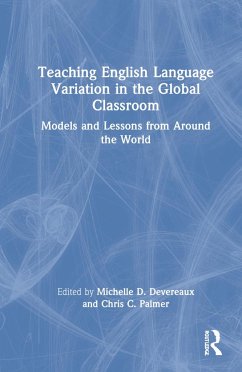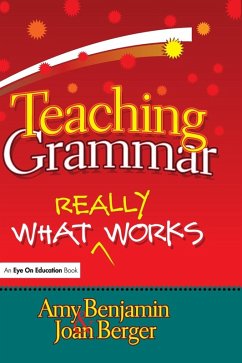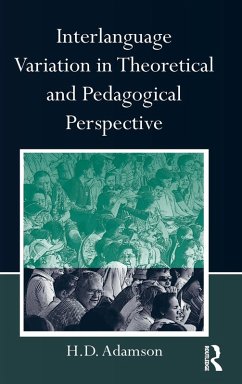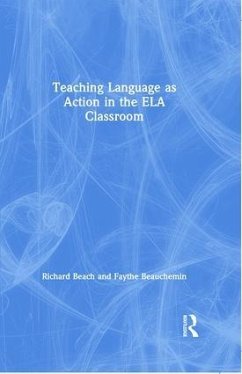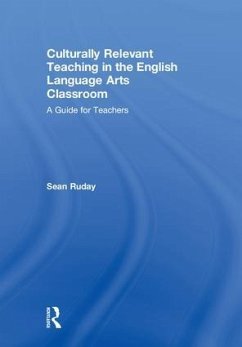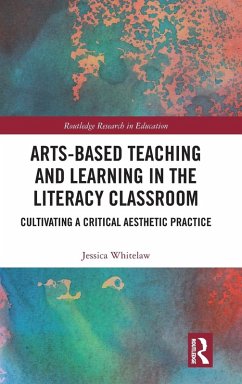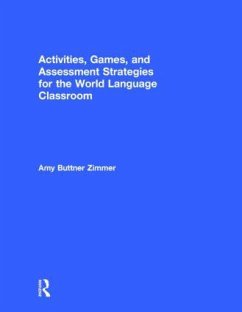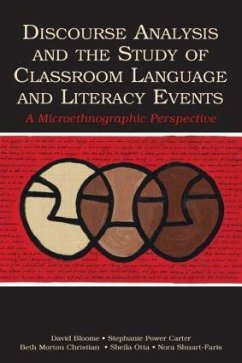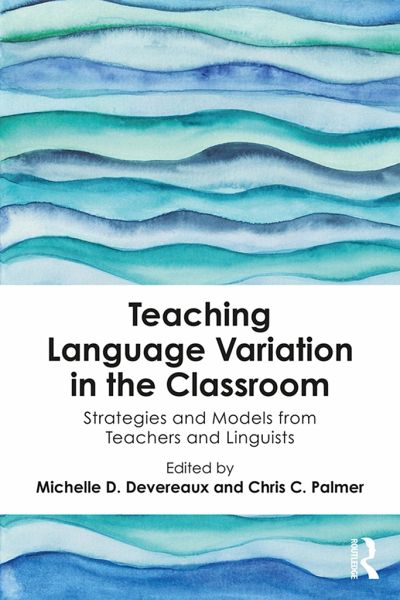
Teaching Language Variation in the Classroom
Strategies and Models from Teachers and Linguists
Herausgeber: Devereaux, Michelle D.; Palmer, Chris C.
Versandkostenfrei!
Versandfertig in 1-2 Wochen
169,99 €
inkl. MwSt.

PAYBACK Punkte
85 °P sammeln!
Written for preservice and in-service ELA teachers, this book brings together the expertise of teachers and linguists to demonstrate ways teachers can implement research-driven linguistic concepts in the classroom, offering real-world lessons and methods for instructing students on language diversity.





